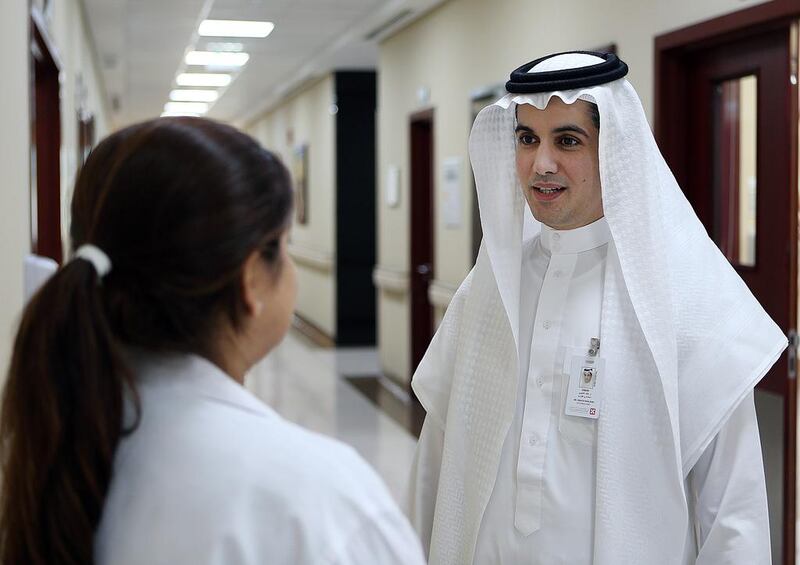DUBAI // Specially trained teams should be available around the clock to investigate clinical findings by doctors and nurses who report suspected cases of child abuse.
The new legislation to protect children’s rights that is due to become law in two weeks will make medical staff more confident about speaking out, but their reports must be thoroughly checked by professionals trained to identify abuse, doctors said.
“My expectation is that authorities will provide the supporting structure with an investigation or abuse team that can determine whether or not there is a necessity to proceed with further collection of evidence,” said Dr Khalid Al Khalaiwy, an emergency medicine consultant at Sulaiman Al Habib hospital in Dubai Healthcare City.
Doctors, he said, may not have all the information after a single encounter with a child and must rule out medical causes of injuries before submitting a report.
“The doctor’s report will be the trigger for an official to look into, and it will require a certain level of expertise for the specialised team to process the findings without damage to any party.”
Before the law, doctors worried about incorrect findings and feared fallout from parents.
“The community should understand that the role of the physician is not [that of] a judge. A physician will document an objective finding of the clinical exam and leave the final investigation to the authorities,” said Dr Al Khalaiwy.
“The introduction of this law will give physicians more confidence. Previously, a doctor would have to face up to the child’s caretaker and there was always a question mark. Without a law that protects him, a physician will feel ‘what are the chances this person will come back and injure me?’”
With the Child Protection Law, for the first time specialists have the authority to take a child from a family in cases of physical or sexual abuse.
A doctor, who did not wish to be identified, recalled feeling helpless when an upset father, on learning that his child had Down syndrome, kicked the boy out of the clinic like a football.
“It still hangs over me that I couldn’t do anything.”
The new law makes it mandatory for physicians to report suspected cases or they could receive a minimum fine of Dh5,000.
Jail time and fines for negligence are also likely for parents who abandon children up to the age of 18.
Doctors have urged good parenting, anger management and therapy programmes to be made available alongside the implementation of the law.
“Sometimes a father says, ‘I lose control,’ or a mother approaches me to talk; I’m afraid this may go underground unless there are other programmes hand-in-hand with the law, so a woman is not scared her husband will be put in prison or she will think twice before saying anything,” said Dr Rajeshree Singhania, a paediatrician at Singhania Clinic.
She welcomed making the medical fraternity accountable.
“It does put a little bit of pressure but it’s also wrong if a child is being abused and you turn the other way. This is a beginning. They will have to keep honing and refining the content of the law.”
Once a case is reported, the child’s rights will prevail, said Jassim Al Hosni, the first judge of appeal in Dubai Courts.
“It is well known that judges are neutral, but judges must give up their neutrality to take care of the child. The law is clear that, in every case, judges have the objective of protecting the child and must side with the child.”
rtalwar@thenational.ae







